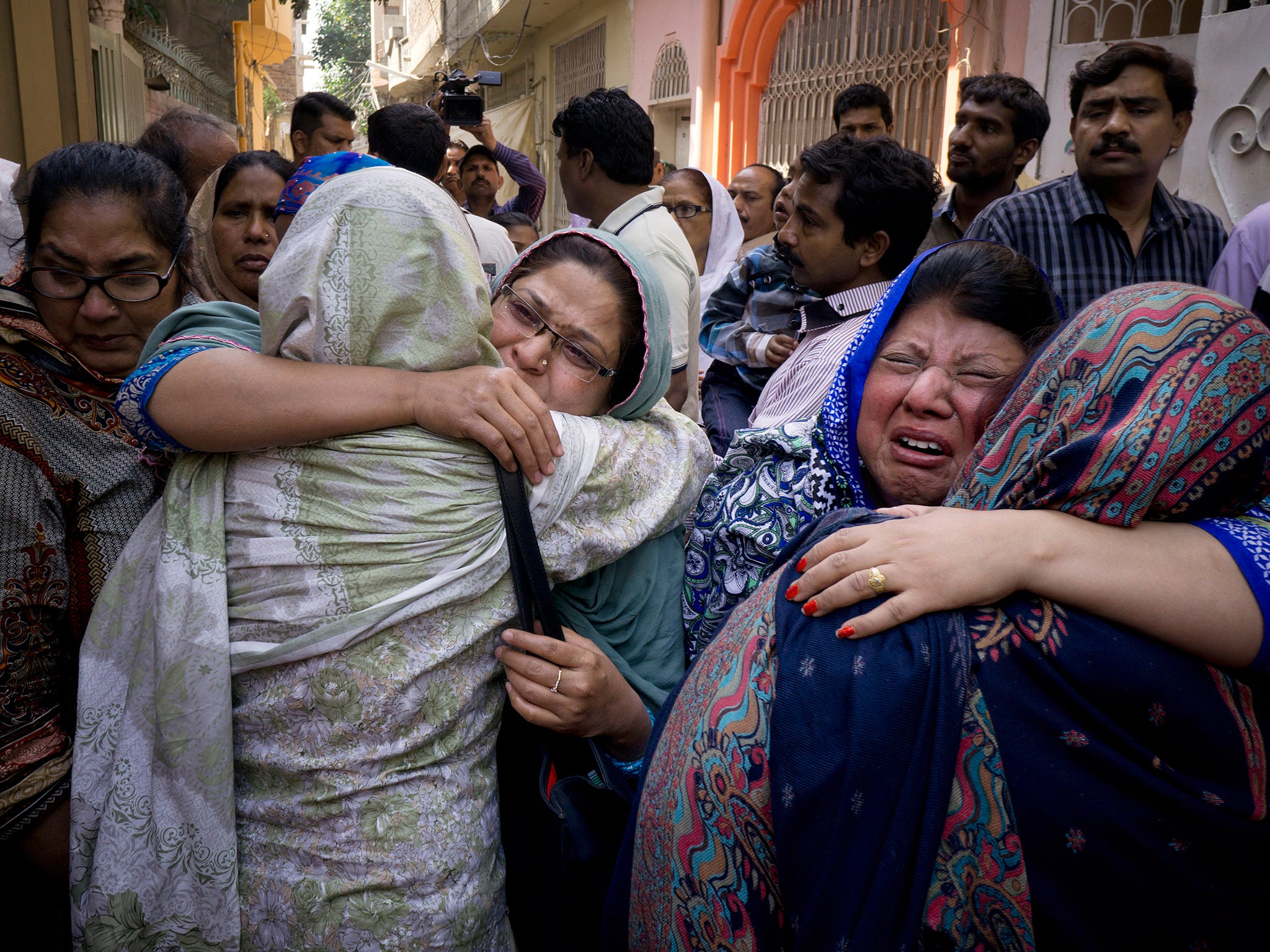The persecution of Pakistan's Christians is not confined to jihadists
The Taliban, which operates by stealth, and thousands of highly visible crowds are both destabilising Prime Minister Nawaz Sharif’s power base - and their common enemy is the country's Christians

Your support helps us to tell the story
From reproductive rights to climate change to Big Tech, The Independent is on the ground when the story is developing. Whether it's investigating the financials of Elon Musk's pro-Trump PAC or producing our latest documentary, 'The A Word', which shines a light on the American women fighting for reproductive rights, we know how important it is to parse out the facts from the messaging.
At such a critical moment in US history, we need reporters on the ground. Your donation allows us to keep sending journalists to speak to both sides of the story.
The Independent is trusted by Americans across the entire political spectrum. And unlike many other quality news outlets, we choose not to lock Americans out of our reporting and analysis with paywalls. We believe quality journalism should be available to everyone, paid for by those who can afford it.
Your support makes all the difference.In 2011, Salmaan Taseer, the governor of Punjab, was slain by his own police bodyguard, Mumtaz Qadri.
Taseer had been defending the rights of Aasia Bibi, a poor Christian farmhand, dubiously accused of blasphemy.
For Qadri, Taseer’s stand represented an act of blasphemy itself. “The punishment for blasphemy,” Qadri sneered, as he was carted away to jail by his police colleagues, “is death.”
Two months later, unknown assailants near his mother’s home in Islamabad killed Shahbaz Bhatti, the only Christian member of the then Pakistani cabinet.
Four months after that, another Shahbaz – Taseer’s third son – was targeted by militants who kidnapped him near his home in Lahore. Meanwhile, for large numbers of vocal Islamists, Qadri was hailed as a hero, with his supporters constantly clamouring for his release.
A few weeks ago, things changed. Qadri was quietly executed for murder. In terms of the law, the decision was easy: he had proudly confessed to his crime. But politically, the judges who passed the verdict exhibited great bravery. One of them even had to flee, of all places, to Saudi Arabia to find safety.
A couple days later, Shahbaz Taseer was discovered, deep inside Pakistan’s southwestern Baluchistan province. Things started to look up for Pakistan and the rule of law.
Qadri’s supporters weren’t to be tamed though. Tens of thousands thronged Rawalpindi for his funeral. Fearful of the reaction, the government ordered schools closed and urged television channels to not cover the event. Since then, the supporters’ rage remains undimmed. They want Qadri declared a martyr, and they want Christian prisoners accused of blasphemy executed.
The attackers who bombed Lahore represent a different challenge. They belong to Jamaat ul-Ahrar, a vicious offshoot of the Pakistani Taliban. These jihadists – who favour a more literal and more violent creed - have little sympathy with Qadri’s mystical Barelvi supporters. In the past, the Taliban has bombed the very shrines that the Barelvis revere. The only things they seem to have in common are their chosen enemies.
Now, however, they have both – the jihadists and the Barelvis – made Pakistan’s Christians and the Prime Minister Nawaz Sharif their targets of opportunity. Taking responsibility for the blast, a spokesman for Jamaat ul-Ahrar said they targeted Lahore, the capital of Punjab, because it is Mr Sharif’s power base.
Punjab is also the one province that has remained untouched by counterterrorist operations in Pakistan. Unlike the tribal areas, the sledgehammer of military action will be of little use there. Taking on militants seeded across the south of the province will require a more delicate approach, one that only the civilians can lead.
Even as the Jamaat-ul-Ahrar spokesman boasted of his group’s massacre in Lahore, Qadri’s supporters were laying siege to the seat of government in Islamabad. They attacked the metro bus stations Sharif’s government had recently built, and remain camped out in the “red zone” just in front of the government’s main buildings.
Mr Sharif is now faced with a series of very difficult challenges. He must protect Pakistan’s Christians and other religious minorities. He will have to discard his reluctance to take on militant groups based in Punjab. And he will have to assert the state’s resolve to uphold the rule of law, without capitulating to pressure from a religious mob.
Join our commenting forum
Join thought-provoking conversations, follow other Independent readers and see their replies
Comments